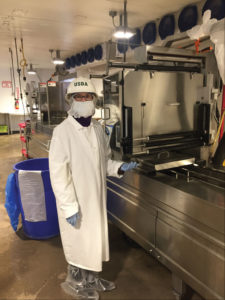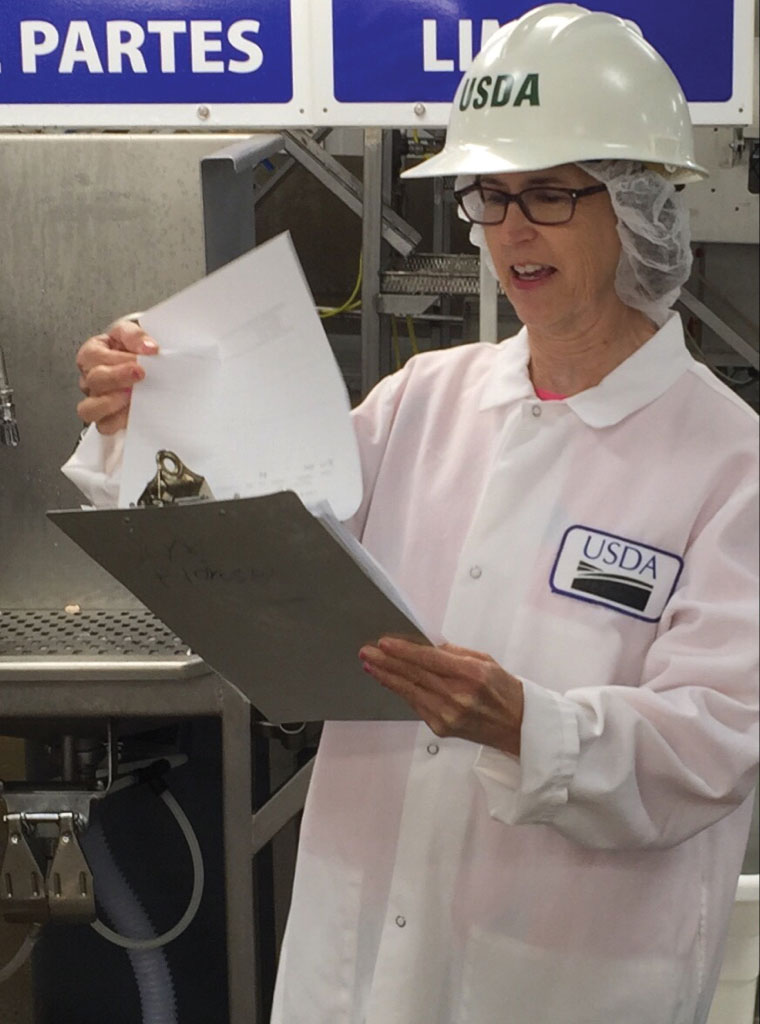When you tear open a pack of chicken breasts for dinner, you’re probably not thinking about the rigorous screening process they went through to make it onto store shelves and into your shopping cart.
Kathleen McAnally, on the other hand, has devoted her career to making sure the meats you buy at the grocery store are safe.
“People are always surprised when I tell them every animal that goes for public sale is examined by a USDA (United States Department of Agriculture) inspector,” says McAnally BS ’77, DVM ’81. “Every bird or animal gets an individual inspection. When I tell them the level of inspection that we have in this country, that’s when people go, ‘Wow.’”
 McAnally began her career at a small animal veterinary practice in Knoxville, Tennessee, and she actually still sees animal patients during her work with the Tennessee Valley Cattle Dog Rescue in Georgetown, northeast of Chattanooga. But she had taken a meat inspection course during vet school at UGA and found the pathology of foodborne illnesses fascinating. So she decided to take a chance and applied for a job with the USDA’s Food Safety and Inspection Service (FSIS).
McAnally began her career at a small animal veterinary practice in Knoxville, Tennessee, and she actually still sees animal patients during her work with the Tennessee Valley Cattle Dog Rescue in Georgetown, northeast of Chattanooga. But she had taken a meat inspection course during vet school at UGA and found the pathology of foodborne illnesses fascinating. So she decided to take a chance and applied for a job with the USDA’s Food Safety and Inspection Service (FSIS).
More than 30 years later, she’s still there, serving as a frontline supervisor and making sure any meat or poultry with the USDA mark on it has been thoroughly inspected.
Before becoming a supervisor with FSIS, she trained to perform pathological examinations, analyzing the bugs that can grow on food when not stored properly and helping to trace the origins of any meat-borne outbreaks. But the most common questions she gets from friends and families aren’t about E. coli or salmonella. They’re a bit more practical.
“The main question I get from my family is about leftovers,” McAnally says. McAnally keeps homemade food for up to five days if it’s been properly refrigerated.
“Now, if it’s a restaurant leftover,” she says, “get it in the fridge as soon as you get home and maybe the next day it’s OK. After that, that’s it.
“I had a friend that went to a restaurant and had, believe it or not, sushi and left it in their vehicle overnight and then snacked on it the next day. They got sick. It’s just so obvious: What were you thinking?”







